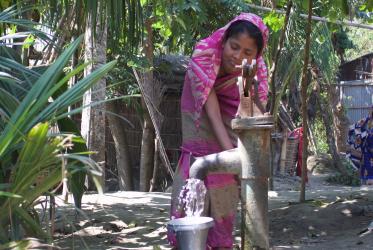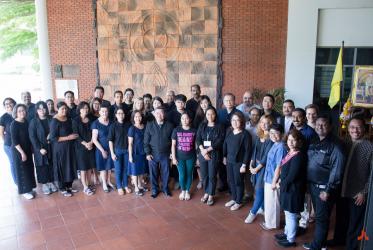Displaying 21 - 40 of 55
WCC condemns massacre of farmers in Philippines
12 April 2019
Peace is common denominator of all major religions
05 March 2019
WCC pilgrimage turns its eyes to Asia
04 March 2019
All pilgrim routes lead to COP24
11 December 2018
#WCC70: Ein Gebet für Gesundheit und Heilung
20 July 2018
#WCC70: A prayer about health and healing
20 July 2018









